Emigrating to Malta: A Comprehensive Synthesis for Cryptocurrency Investors
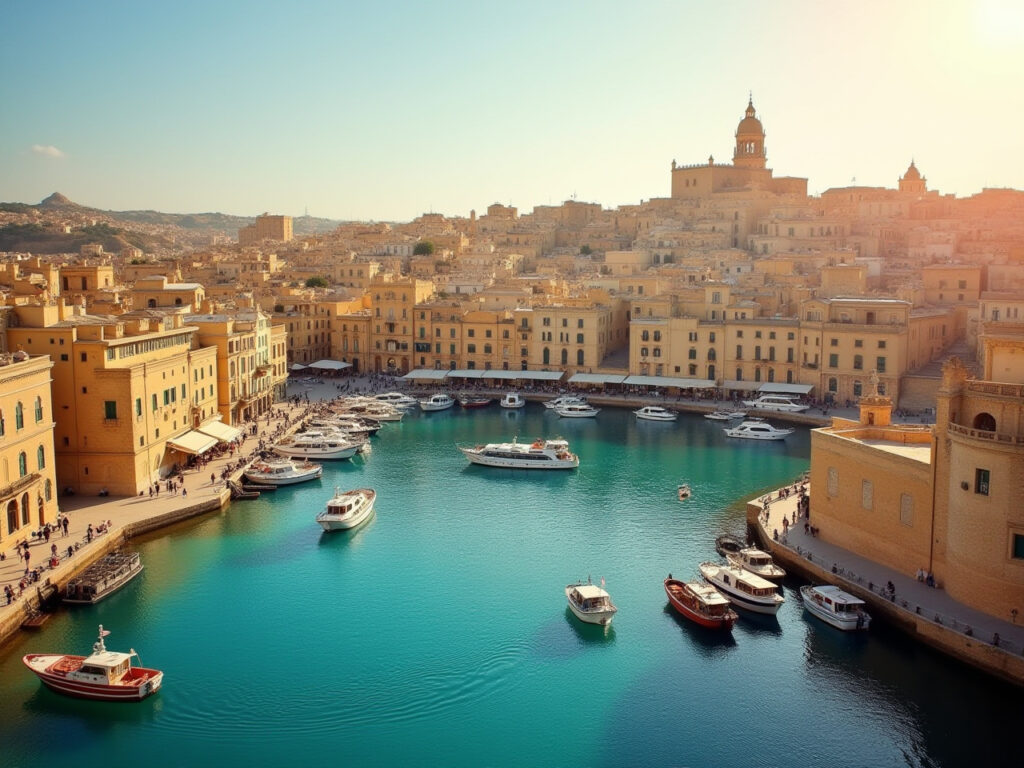
Executive Summary
Malta, an island nation within the European Union, has historically positioned itself as a forward-thinking jurisdiction in the realm of digital assets. This report provides a comprehensive overview for a cryptocurrency investor considering emigration to Malta. It highlights the key factors that make Malta an attractive destination, including its established regulatory framework for cryptocurrencies, various investment migration pathways, and a potentially favorable tax regime.
Pay 0% Tax Legally — Start Your Tax-Free Strategy Today
Even in low-tax jurisdictions, most investors still overpay.
Our elite partner tax law firms specialize in advanced legal structures that can reduce your effective tax rate to as low as 0%, fully compliant, audit-ready, and tailored to your profile.
Crypto-friendly. International. Proven.
The analysis delves into Malta’s cryptocurrency regulations, the requirements and processes for residency and citizenship by investment programs, the tax implications for individuals and specifically for cryptocurrency investments, and the overall environment for cryptocurrency-related businesses. While Malta presents numerous advantages, this report also touches upon certain considerations that a cryptocurrency investor should be aware of before making a decision.
Malta’s Regulatory Landscape for Cryptocurrencies
Malta demonstrated an early commitment to regulating the virtual financial asset space with the enactment of the Virtual Financial Assets Act (VFAA) in November 2018. This legislative move positioned Malta as one of the first jurisdictions to establish a comprehensive framework for digital assets. The primary objective of the VFAA was to provide the necessary legal certainty for the cryptocurrency industry to flourish while also safeguarding the interests of consumers and maintaining Malta’s reputation as a trusted financial center.
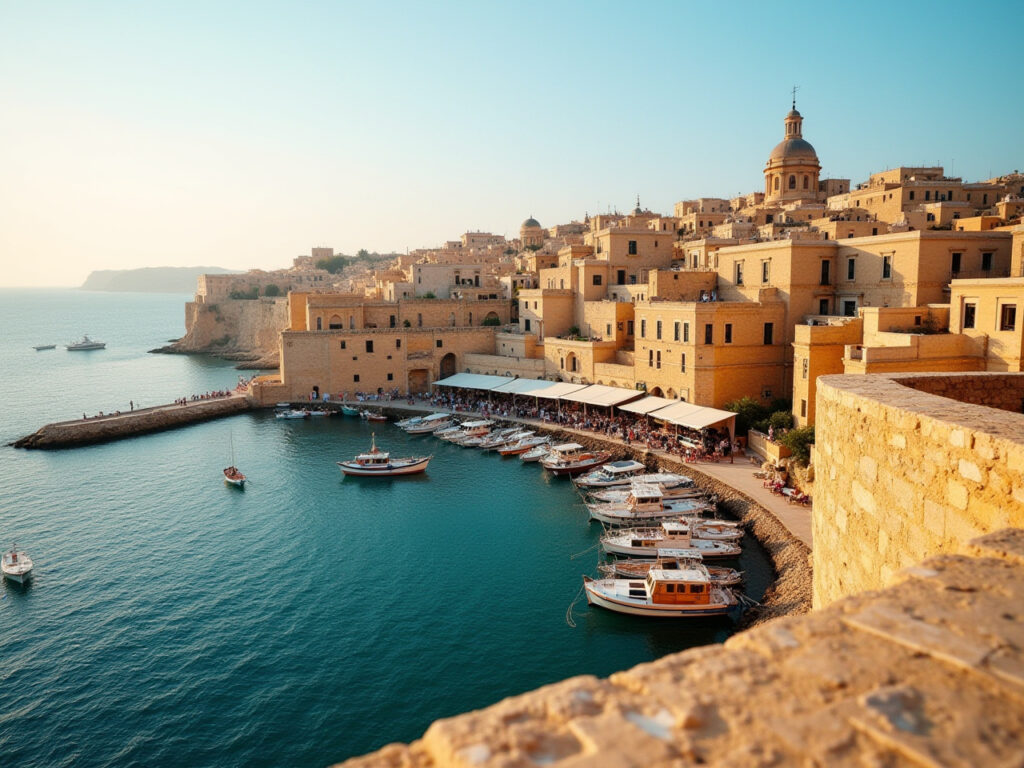
Under the VFAA, a Virtual Financial Asset (VFA) is defined as any digital medium utilized as a unit of exchange or a store of value, excluding electronic money, financial instruments, or virtual tokens. This definition encompasses popular cryptocurrencies such as Bitcoin and Ethereum. It is important to note that the VFAA does not automatically classify all virtual assets as securities or other regulated financial instruments. Instead, it outlines specific criteria that virtual financial assets must meet when offered to the public or traded on Distributed Ledger Technology (DLT) exchanges. Stablecoins, for instance, are regulated under the VFAA and can be considered Electronic Money if they meet certain conditions, such as maintaining a one-to-one ratio with a fiat currency and being redeemable at par value. This proactive approach to defining and regulating various types of digital assets indicates a government that recognizes the nuances within the cryptocurrency space and aims to provide clarity for businesses and investors.
Non-compliance with the VFAA and its regulations can result in significant administrative penalties, including fines ranging from €1,000 to potentially exceeding €150,000 or 10% of the total annual turnover for legal entities. Additionally, the authorities may suspend or revoke licenses and publicly disclose details of the infringement. In certain circumstances, criminal sanctions may also be applied, and companies can be held liable for the non-compliant actions of their officers or employees. This robust penalty structure underscores the seriousness with which Malta views adherence to its cryptocurrency regulations, aiming to foster a compliant and trustworthy environment.
Issuing or publicly offering virtual assets in Malta is subject to specific requirements, including the production and registration of a whitepaper with the Malta Financial Services Authority (MFSA) before making the offering. Issuers must also conform to any guidelines issued by the Financial Intelligence and Analysis Unit of Malta. However, exemptions exist for small offerings where the aggregate value of VFAs issued is less than €5 million, in which case the whitepaper registration and the issuance of a VFA Offering Circular are not required. These regulations and exemptions demonstrate an effort to balance oversight with the facilitation of innovation and smaller-scale projects within the virtual asset industry.

The provision of Virtual Financial Asset (VFA) services in or from Malta necessitates obtaining a license or registration from the MFSA. Entities seeking to become Virtual Asset Service Providers (VASPs) must meet several key requirements, including being a legal person formed under Maltese law, submitting an annual compliance certificate, appointing an independent third-party custodian for client assets, and submitting a compliant whitepaper along with relevant documentation and fees. These stipulations highlight the emphasis on legal establishment, financial accountability, and the security of client funds within Malta’s regulatory framework for VASPs.
Ongoing requirements for VASPs regulated in Malta include continuous adherence to the provisions of the VFAA, the Virtual Financial Assets Regulations (VFAR), and the VFA Rulebook. Furthermore, VASPs are mandated to maintain adequate Anti-Money Laundering (AML) and Counter-Terrorist Financing (CFT) policies and procedures. A crucial requirement for issuers of VFAs is the appointment of a VFA agent, approved by the MFSA, who is responsible for specific reporting and monitoring obligations. Additionally, VASPs are obligated to provide their customers with comprehensive information, including full details of the issuer, legal advisors, auditors, and technical experts, as well as the services offered, terms and conditions, and information on the risks associated with virtual financial assets. These detailed obligations reflect a commitment to transparency and consumer protection within the Maltese crypto ecosystem.
The regulatory landscape in Malta has been further shaped by the European Union’s Markets in Crypto-assets Regulation (MiCA), which aims to create a harmonized regulatory framework for crypto-assets across the EU. MiCA applies to natural or legal persons involved in the issuance, public offering, and trading of crypto-assets, as well as crypto-asset service providers within the EU, subject to certain exemptions. Recognizing the significance of this EU-wide regulation, Malta has taken steps to align its existing VFA framework with MiCA through the Virtual Financial Assets (Amendment) Regulation enacted on April 16, 2024. This amendment has led to changes such as the removal of the VFA agent role, with issuers and license applicants now directly responsible to the MFSA. Moreover, Asset-referenced tokens (ARTs) and E-money tokens (EMTs) are now solely regulated by MiCA and fall outside the scope of the VFA Act. In anticipation of MiCA’s full implementation on December 30, 2024, the MFSA ceased accepting new license applications under Article 14 of the VFA Act after August 1, 2024. This proactive adaptation demonstrates Malta’s commitment to remaining a compliant and competitive jurisdiction within the evolving European regulatory landscape for digital assets. MiCA places a strong emphasis on investor protection, requiring measures such as the safeguarding of customer funds by EMT issuers and the maintenance of reserves by ART issuers to match potential liabilities. This focus on security reinforces the potential for a protected environment for cryptocurrency investors in Malta.

Malta’s early entry into cryptocurrency regulation dates back to 2019 with the issuance of the virtual financial assets framework, making it a pioneer in this area. This foresightful move to legislate in the digital asset space, while considered somewhat unconventional at the time, has allowed Malta to develop a relatively mature and experienced regulatory environment. Managers of crypto funds in Malta are also subject to regulation by the MFSA under the Investment Services Act (ISA) and the VFAA, indicating a comprehensive oversight of various aspects of the cryptocurrency ecosystem.
It is worth noting that while Malta has a progressive regulatory stance towards cryptocurrencies, individual financial institutions may still exercise caution. For instance, after the Bank of Valletta, one of Malta’s largest banks, blocked cryptocurrency transfers, the government clarified that it does not interfere with the operational policies of individual banks. This suggests that while the overall environment is supportive, cryptocurrency investors should be prepared for potentially varying levels of acceptance and service from traditional banking institutions.
| Feature | Description |
| Virtual Financial Assets Act (VFAA) | Primary legislation governing virtual financial assets in Malta, enacted in 2018. Defines VFAs and sets the regulatory framework for issuers, VFA agents, and VFA service providers. |
| Markets in Crypto-assets Regulation (MiCA) | EU-wide regulation aiming to harmonize the regulatory framework for crypto-assets. Malta is actively aligning its VFAA with MiCA. |
| Virtual Asset Service Providers (VASPs) | Individuals or entities providing VFA services in or from Malta require licensing or registration from the MFSA. Subject to ongoing compliance, AML/CFT obligations, and customer information disclosure requirements. |
| Whitepaper Requirement | Issuers of VFAs must produce and register a whitepaper with the MFSA before a public offering, with exemptions for small offerings. |
| Regulation of Stablecoins | Stablecoins are regulated under the VFAA and can be considered Electronic Money if specific criteria are met. |
| Regulation of Crypto Funds | Managers of crypto funds in Malta are regulated by the MFSA under the ISA and the VFAA. |
| Penalties for Non-Compliance | Administrative penalties include fines, license suspension/revocation, and public disclosure. Criminal sanctions may also apply in certain cases. |
| VFA Agent (Phased Out) | Previously, issuers were required to appoint a VFA agent; this role is being phased out with MiCA alignment, placing direct responsibility on issuers and license applicants. |
| Bank Policies | While Malta has a progressive regulatory stance, individual banks may have their own policies regarding cryptocurrency transactions, which investors should be aware of. |
Residency and Citizenship by Investment Programs
Malta offers several pathways for individuals to obtain residency or citizenship through investment, which can be particularly appealing to cryptocurrency investors seeking a stable and potentially tax-efficient base within the European Union.
Malta Permanent Residence Programme (MPRP)
The Malta Permanent Residence Programme (MPRP) provides non-EU nationals and their families with the opportunity to gain permanent residency in Malta, granting them visa-free travel within Europe’s Schengen Area. This program allows beneficiaries to reside indefinitely in Malta. To be eligible, the main applicant must be at least 18 years old, not be a citizen of the European Union, and possess a clean criminal record. Additionally, applicants must hold comprehensive health insurance coverage. A significant financial requirement is the possession of capital amounting to at least €500,000, of which a minimum of €150,000 should be in liquid financial assets, or alternatively, total assets of at least €650,000 with a minimum of €75,000 in liquid financial assets. It is important to note that virtual currencies are generally not considered liquid financial assets for the purpose of meeting this requirement. This implies that cryptocurrency investors would likely need to have a substantial portion of their wealth in more traditional, readily accessible forms to qualify for the MPRP.

The MPRP offers two primary investment options:
- Property Purchase: The applicant can purchase a residential property in Malta with a minimum value of €375,000. This property can be located anywhere in Malta, including the southern region and the island of Gozo. In addition to the property purchase, a contribution of €30,000 to the Maltese economy is required. The purchased property must be held for a minimum period of five years.
- Property Rental: Alternatively, the applicant can lease a residential property in Malta with a minimum annual rent of €14,000. This lease agreement must be for a minimum of five years. If this option is chosen, the contribution to the Maltese economy is €60,000.
Regardless of the chosen property option, applicants are also required to make a donation of €2,000 to a local registered philanthropic, cultural, scientific, artistic, sport, or animal welfare non-governmental organization. Furthermore, a non-refundable administration fee is applicable, which can be around €50,000 for the main applicant, with additional fees for dependents (e.g., €10,000 per dependent). The availability of both property purchase and rental options provides flexibility for investors based on their financial strategies and long-term plans.
The application process for the MPRP involves several stages. Initially, the application is submitted to the Residency Malta Agency, the government body responsible for administering the program. Following this, stringent due diligence checks are conducted on the applicant and any dependents. Successful applicants are then required to complete the qualifying investments, after which they are issued a residence permit. The entire process typically takes between 6 to 8 months. A preliminary due diligence check is often conducted at the outset to assess the applicant’s likelihood of success. This multi-step process underscores the importance of transparency and the need for applicants to provide verifiable documentation, especially regarding the source of their funds.
The benefits of obtaining permanent residence through the MPRP are numerous. These include the right to reside in an EU country and enjoy visa-free access to the Schengen Area for 90 days within any 180-day period. Residents also have the right to live indefinitely in Malta. Notably, there is no strict residence requirement, although some physical presence in Malta might be recommended. The program allows for the inclusion of family members in the application, and Malta boasts a range of top-tier international schools offering various curricula. These benefits make the MPRP an attractive option for international investors seeking enhanced mobility and a stable base within the European Union.
Maltese Exceptional Investor Naturalization (MEIN) Program (Citizenship by Investment)
For cryptocurrency investors seeking full citizenship within the European Union, Malta offers the Maltese Exceptional Investor Naturalization (MEIN) program, also frequently referred to as the Malta Citizenship by Investment (CBI) program. This program is designed to attract individuals and their families who can contribute significantly to Malta’s economic and social development.
Eligibility for the MEIN program is subject to stringent criteria. Applicants must be at least 18 years old and possess global health insurance coverage of at least €50,000, demonstrating good health and the absence of any contagious diseases. A critical aspect of the program is the mandatory passing of a rigorous four-tier due diligence process conducted by the Community Malta Agency (CMA).
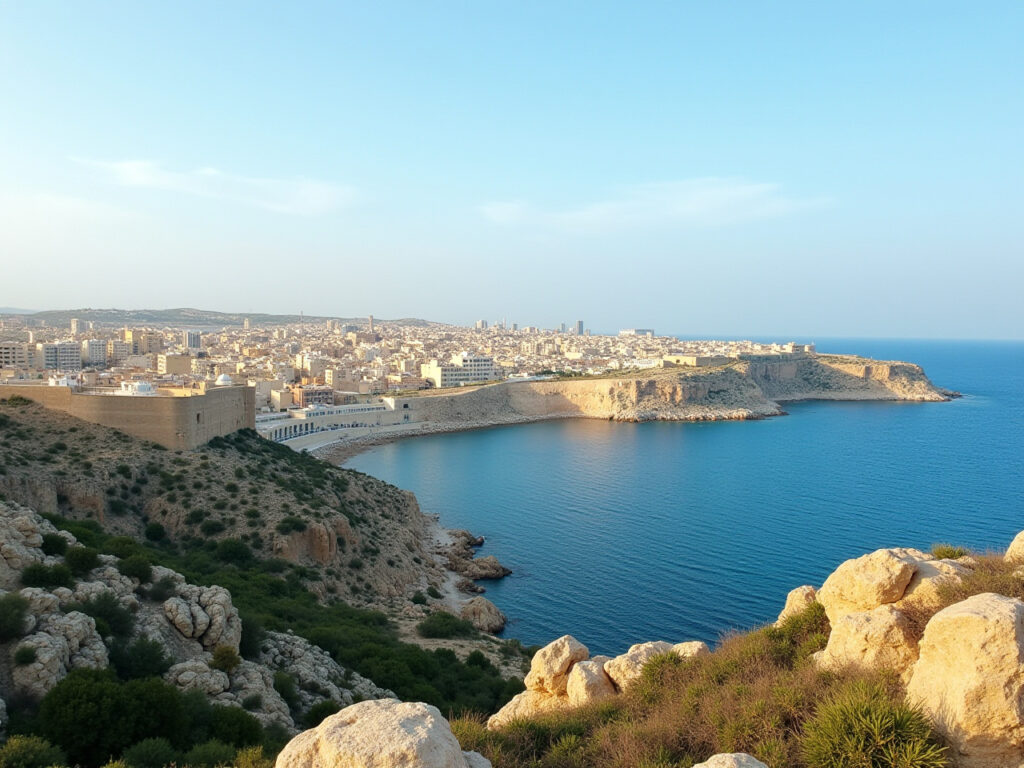
This process involves thorough background checks on the applicant’s character, source of funds, and overall reputation, utilizing international databases and potentially involving interviews and investigations in the applicant’s home country. Applicants must not have been previously denied a visa to a country that has a visa waiver agreement with Malta and must not be deemed a national security or reputation risk or be under any criminal investigation. Furthermore, individuals holding nationalities from certain countries, such as Afghanistan, Belarus, and Russia, are currently ineligible. A key requirement of the MEIN program is that applicants must first establish legal residence in Malta for a period of either 12 or 36 months before they can be granted citizenship. This residency requirement necessitates obtaining a residence permit and demonstrating genuine links to the country.
The MEIN program requires significant financial investments across several components:
- Government Contribution: A non-refundable exceptional direct investment is required to the National Development and Social Fund (NDSF). The amount varies based on the chosen residency period: €750,000 for applicants who opt for the 12-month residency route, or €600,000 for those choosing the 36-month residency period. An additional contribution of €50,000 is required for each dependent included in the application. Upon approval of the residency application, a deposit (e.g., €10,000) towards this exceptional investment is typically required.
- Property Investment: Applicants must either purchase a residential property in Malta with a minimum value of €700,000, which must be held for at least five years and cannot be rented out or sold during this period. Alternatively, they can lease a residential property for a minimum annual rent of €16,000, also for a period of five years. A valid lease agreement or proof of property purchase is required throughout the residency period.
- Donation: A mandatory donation of at least €10,000 must be made to a registered sport, cultural, scientific, philanthropic, animal welfare, or artistic non-governmental organization (NGO) or society approved by the Community Malta Agency.
The application process for Maltese citizenship through the MEIN program is comprehensive and involves several stages. Initially, potential candidates are strongly advised to begin the residency process immediately, as a minimum of 12 months of residency is a prerequisite for citizenship. The first step is to apply for a residence permit, which requires a physical visit to Malta for the collection of biometric data. Upon approval of the residency, a deposit towards the exceptional investment is made. Within 12 months of receiving the residency card, a citizenship eligibility pack must be submitted, including imperative supporting documents and evidence of the source of funds. At this stage, the applicant indicates whether they intend to apply for citizenship after 12 or 36 months of residency. Due diligence fees are also payable at this stage. After completing the required residency period, the applicant can formally apply for citizenship. The application undergoes a thorough review, including further due diligence checks. If approved in principle, the applicant is required to fulfill the remaining investment requirements within a specified timeframe. Finally, upon successful completion of all requirements and a final review, citizenship is granted, and the applicant is required to take an Oath of Allegiance. The entire process, from initial application to the granting of citizenship, typically takes between 12 to 18 months.
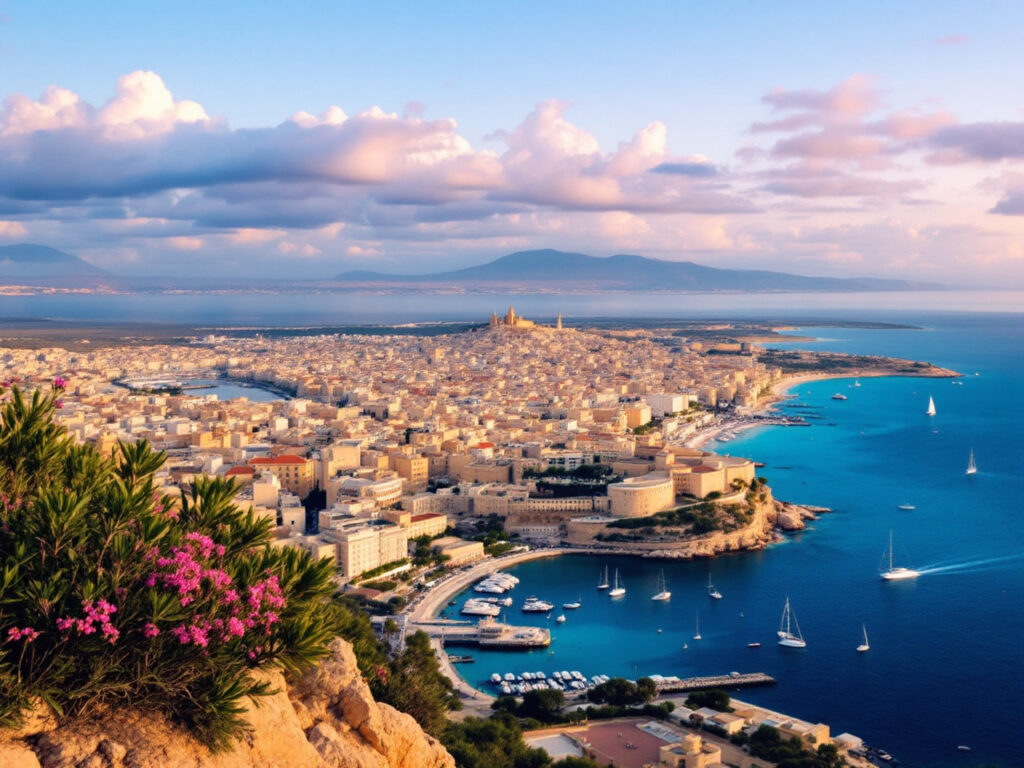
Obtaining Maltese citizenship through the MEIN program offers significant benefits. Maltese citizens enjoy visa-free or visa-on-arrival travel to approximately 190 destinations worldwide, including the United States, the Schengen states, the UK, Switzerland, and Canada. Citizenship grants the right to live, work, study, and conduct business in any of the European Union member states. Malta is also recognized as a transparent and reputable financial center and a prime jurisdiction for international business. The program allows for the inclusion of a spouse, dependent children, and dependent parents and grandparents in the main application. These advantages make Maltese citizenship a highly desirable option for high-net-worth individuals with global interests.
Source of Funds and Due Diligence for Cryptocurrency Investors
For cryptocurrency investors considering either the MPRP or the MEIN program, demonstrating the legitimate source of their funds is paramount to successfully navigating the mandatory due diligence processes. Simply presenting cryptocurrency holdings in a digital wallet or providing records of transactions through unregulated exchanges is generally insufficient to satisfy the stringent requirements. Applicants must be able to provide a clear and verifiable audit trail of how the funds used for the investment were initially acquired, including the source of the capital used to purchase the cryptocurrency, details of any exchanges or transactions, and evidence of whether any applicable taxes were paid on profits derived from cryptocurrency trading or sales.
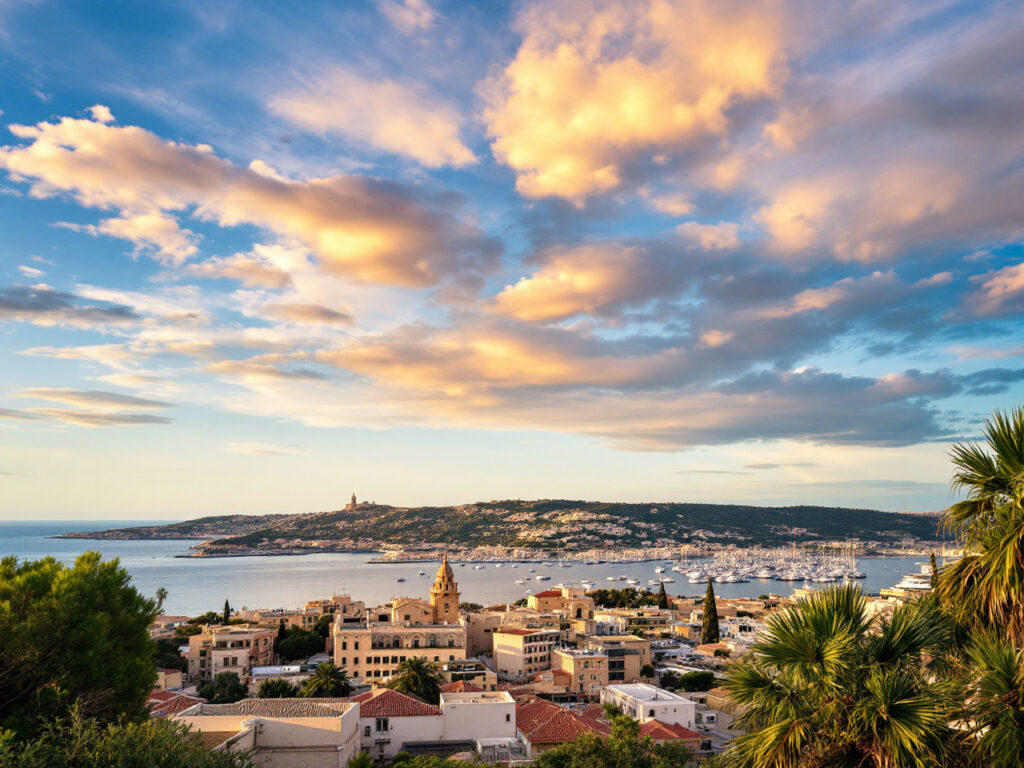
Malta’s investment migration programs employ a comprehensive four-tier due diligence process to ensure the integrity of the programs and to safeguard national security and public policy. This involves initial background screenings conducted by agents, government checks using international databases, in-depth international due diligence carried out by external firms (which may include on-the-ground investigations and interviews), and a final review by the Community Malta Agency, which assesses the applicant across various risk categories, including financial, legal, security, and reputational risks. Particular attention is paid to verifying the legality of the applicant’s wealth and ensuring that the funds are not linked to any illicit activities.
While some agencies may claim to accept cryptocurrency as a direct form of payment for investment migration programs, the underlying principle remains that the funds must ultimately be converted into fiat currency through regulated financial channels to meet the investment requirements. The focus of the due diligence is not solely on the current form of the assets but rather on their origin and the legality of their accumulation. Therefore, cryptocurrency investors must be prepared to provide extensive documentation and potentially engage professional legal and financial advisors who specialize in cryptocurrency transactions to assist them in compiling the necessary evidence to satisfy the due diligence requirements.
| Feature | Malta Permanent Residence Programme (MPRP) | Maltese Exceptional Investor Naturalization (MEIN) Program (Citizenship by Investment) |
| Minimum Investment | Starting from approximately €182,000 (including property purchase/rental, government contribution, and donation). | Minimum investment of €600,000 (36-month residency) or €750,000 (12-month residency) in government contribution, plus property investment (€700,000 purchase or €16,000/year rent), and a €10,000 donation. |
| Residency Requirement | No strict minimum stay requirement, but establishing residence is necessary. | Mandatory residency period of either 12 or 36 months prior to applying for citizenship. |
| Visa-Free Travel | Visa-free access to the Schengen Area (90 days within 180). | Visa-free or visa-on-arrival travel to approximately 190 destinations, including the EU, Schengen states, UK, and Canada. |
| Right to Live and Work in EU | Right to reside indefinitely in Malta. Does not automatically grant the right to work in other EU countries. | Full right to live, work, study, and do business in any of the European Union member states. |
| Due Diligence | Stringent due diligence checks conducted by the Residency Malta Agency. | Very strict four-tier due diligence process conducted by the Community Malta Agency (CMA). |
| Inclusion of Family Members | Spouse, dependent children, and dependent parents can be included. | Spouse, children under 18, unmarried and financially dependent children aged 18-29, and dependent parents and grandparents over 55 can be included. |
| Long-Term Stability | Permanent residency with renewable residence card every five years. | Full citizenship granting the rights and privileges of an EU citizen. |
Taxation in Malta for Cryptocurrency Investors
Understanding Malta’s tax system is crucial for cryptocurrency investors considering emigration. Malta operates a tax system based on residency and domicile. Individuals who are residents but not domiciled in Malta are generally taxed on income and capital gains arising in Malta and on income arising outside Malta that is remitted to Malta. This “non-domiciled” tax status can be particularly advantageous for international investors, including those holding significant cryptocurrency assets. For non-domiciled residents, foreign-source income that is not remitted to Malta is typically not subject to Maltese income tax, and capital gains arising outside Malta (whether remitted or not) may also be exempt from tax in Malta. This aspect of Malta’s tax regime could be highly appealing to cryptocurrency investors who hold their assets and generate income internationally, as it potentially offers tax advantages on profits that are not brought into Malta.

While Malta has established itself as a crypto-friendly jurisdiction with a well-developed regulatory framework for digital assets, the specific tax treatment of cryptocurrency gains for non-domiciled individuals requires careful consideration and professional advice. Although the general principle of the non-domiciled rule suggests potential exemptions for gains on crypto held outside Malta and not remitted, it is essential to obtain personalized tax counsel to understand the precise implications based on individual circumstances and the nature of the cryptocurrency activities.
Notably, there is potentially no specific mining tax on cryptocurrencies in Malta. Furthermore, the tax rate on the sale of cryptocurrencies in Malta has been reported to range between 0% and 5%. However, the conditions under which these rates apply would need further clarification from tax professionals and a thorough review of the current tax legislation. The potential for low or no tax on certain cryptocurrency-related activities could serve as a significant financial incentive for cryptocurrency investors to consider relocating to Malta.
Beyond the taxation of cryptocurrency, Malta’s overall tax system for individuals includes several other favorable aspects. There are no inheritance taxes, real property taxes, net wealth taxes, or municipal taxes levied in Malta. Stamp duty is applicable to certain transfers, such as those involving real property or securities. The standard rate of Value-Added Tax (VAT) in Malta is 18%. Additionally, property purchased under the citizenship by investment program can be sold tax-exempt after the mandatory five-year holding period, provided that the property was used as the owner’s primary residence for at least three years. The absence of certain common wealth taxes further enhances Malta’s attractiveness as a potentially tax-efficient jurisdiction for high-net-worth individuals.
| Tax Aspect | Details for Non-Domiciled Residents | Relevance to Crypto Investors |
| Income Tax | Taxed on Malta-source income and foreign-source income remitted to Malta. | Income from crypto activities within Malta or remitted to Malta may be taxable. |
| Capital Gains Tax | Taxed on Malta-source capital gains. Foreign-source capital gains may be exempt, whether remitted or not. | Potential exemption for gains on crypto held outside Malta and not remitted. Requires professional confirmation. |
| Tax on Sale of Cryptocurrency | Reported to range between 0% and 5%. Specific conditions require clarification. | Potentially low tax rate on cryptocurrency sales within Malta. |
| Mining Tax | Potentially no specific tax on cryptocurrency mining. | Could be advantageous for individuals involved in crypto mining. |
| Inheritance Tax | No inheritance tax in Malta. | Beneficial for estate planning involving cryptocurrency assets. |
| Real Property Tax | No annual real property tax. | Reduces the cost of owning property in Malta. |
| Net Wealth Tax | No net wealth tax in Malta. | Overall reduction in wealth-related tax burdens. |
| Municipal Tax | No municipal taxes in Malta. | Lower property-related expenses. |
| VAT | Standard rate of 18%. | Applicable to goods and services purchased in Malta. |
| Stamp Duty | Applicable to certain transfers, including real property and securities. | May apply to property transactions related to investment migration. |
It is strongly recommended that cryptocurrency investors seeking to emigrate to Malta obtain detailed and personalized tax advice from qualified professionals in Malta to fully understand the implications of their specific financial situation and cryptocurrency holdings under Maltese tax law.
Cost and Quality of Life in Malta
(Note: The provided research snippets do not contain specific information on the cost of living or quality of life in Malta. The following section is based on general knowledge and common information available about Malta.)
Malta generally offers a relatively moderate cost of living compared to many other countries in Western Europe. However, costs can vary significantly depending on lifestyle, location, and personal preferences.
Cost of Living:
- Housing: Rental prices for apartments can range from €800 to €1,500 or more per month depending on the location and size. Purchasing property can vary widely, with apartments starting from around €200,000 and villas reaching into the millions. Areas like Sliema and St. Julian’s tend to have higher property prices and rental costs compared to areas in the south or on Gozo.
- Utilities: Monthly utility expenses, including electricity, water, and internet, can range from €150 to €300 or more, depending on consumption and the size of the property. Air conditioning in the summer months can significantly increase electricity bills.
- Food: Groceries can be reasonably priced, with a mix of local and imported products available. Dining out can range from affordable local eateries to high-end restaurants, with prices comparable to other European tourist destinations.
- Transportation: Malta has a public bus system that covers most of the islands and is relatively inexpensive. A monthly pass costs around €30. Car ownership is also common, but traffic and parking can be challenging in some areas. Fuel costs are comparable to other European countries. Ride-sharing services are also available.
- Other Expenses: Costs for leisure activities, entertainment, and personal care are generally in line with other European countries.
Quality of Life:
- Healthcare: Malta has a good healthcare system, with both public and private options available. The public healthcare system is accessible to residents and is generally of a good standard. Private healthcare offers quicker access to specialists and a wider range of services.
- Education: Malta offers a variety of educational options, including public schools, private schools, and international schools catering to different curricula. Higher education is available through the University of Malta and other institutions.
- Safety and Crime: Malta generally has a low crime rate and is considered a safe place to live.
- Social Environment: The official languages are Maltese and English, with English being widely spoken, making it easy for expatriates to communicate. Malta has a rich history and culture, with numerous historical sites, festivals, and cultural events throughout the year. The social environment is generally considered friendly and welcoming to foreigners.
- Leisure Activities: Malta offers a Mediterranean lifestyle with ample opportunities for outdoor activities, including swimming, diving, boating, and hiking. The islands also have a vibrant nightlife, particularly in areas like Paceville.
Overall, Malta can offer a good quality of life at a reasonable cost, particularly for those who appreciate a Mediterranean climate, a rich cultural heritage, and a relatively relaxed pace of life. However, it is important for potential emigrants to research specific costs and consider their individual lifestyle needs.
Banking and the Cryptocurrency Business Environment
Securing reliable banking services is a critical aspect of relocating to a new country, especially for individuals involved in the cryptocurrency sector. While Malta has positioned itself as a crypto-friendly jurisdiction, the practicalities of banking for non-residents and cryptocurrency-related businesses can present certain considerations.

Opening a Bank Account for Non-Residents:
(Note: The provided research snippets do not offer specific details on this topic. The following is based on general expectations and potential challenges.)
Opening a bank account in Malta as a non-resident can sometimes be a complex process. Banks typically require substantial documentation to comply with KYC (Know Your Customer) and AML (Anti-Money Laundering) regulations. This documentation may include proof of identity, proof of address, information about the source of funds, and details about the applicant’s business activities. Given the nature of the cryptocurrency industry, some banks may have more stringent requirements or may express reluctance to onboard clients whose primary source of wealth is derived from digital assets. As highlighted earlier, the Bank of Valletta’s past stance on blocking cryptocurrency transfers indicates that individual banks may have their own risk management policies regarding cryptocurrency, which could impact account opening and transaction processing for crypto investors and businesses. Therefore, it is advisable for cryptocurrency investors considering Malta to thoroughly research and potentially engage with banks that have a more open and understanding approach to the digital asset space. Exploring options such as online banking platforms or financial institutions that specifically cater to the fintech and blockchain sectors might also be beneficial.
Cryptocurrency Business Environment in Malta:
Malta has actively sought to foster a thriving ecosystem for cryptocurrency and blockchain technology. The government’s aim has been to create a legally certain environment that allows the industry to prosper. This proactive stance has attracted numerous companies and investors wanting to operate in the virtual financial assets space. Malta’s booming sectors, including fintech, gaming, and blockchain, have drawn global investors to the island. The country is also recognized as a prime jurisdiction for international business, offering a strategic location within the European Union. The regulation of crypto fund managers under the MFSA further indicates a comprehensive approach to supporting various facets of the cryptocurrency industry. This supportive environment can provide cryptocurrency investors with opportunities for networking, business development, and access to specialized services within the sector.
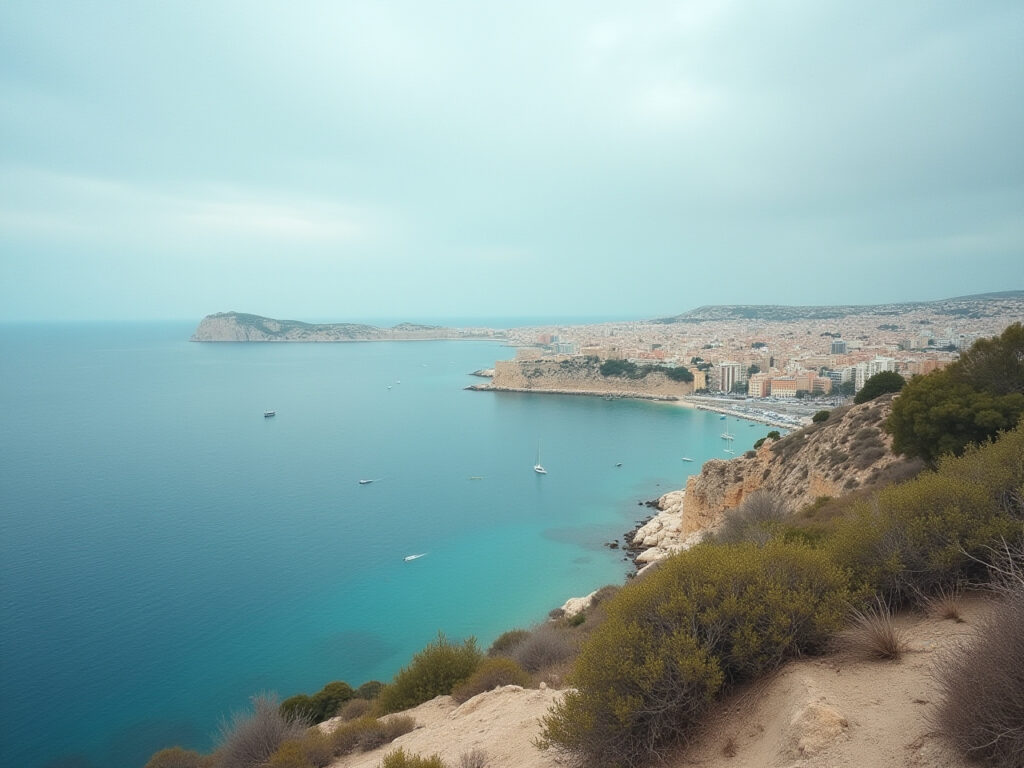
However, it is important to acknowledge that the cryptocurrency business environment in Malta, like any other, is not without its challenges. The government has recognized the complexities involved in regulating rapidly evolving technologies, particularly those operating across multiple jurisdictions. Balancing the need for robust regulation with the desire to maintain competitiveness is an ongoing consideration for policymakers. The cautious approach of some traditional banks towards cryptocurrency also presents a practical hurdle for individuals and businesses in this sector. Despite these challenges, Malta’s continued commitment to providing a clear and supportive regulatory framework suggests that it remains an attractive destination for cryptocurrency investors and entrepreneurs looking to establish a base within the European Union.
Networking and Community for Cryptocurrency Investors
(Note: The provided research snippets do not contain specific information on networking events and communities for cryptocurrency investors in Malta. The following highlights the importance of this aspect and suggests areas for further research.)
For any individual relocating to a new country, establishing a professional and social network is crucial for both personal and professional success. This is particularly true for cryptocurrency investors who may benefit from connecting with like-minded individuals, industry experts, and potential business partners. While the research snippets do not explicitly detail specific networking events or communities for cryptocurrency investors in Malta, it is reasonable to expect that a jurisdiction that has actively sought to become a hub for digital assets would have a growing ecosystem in this regard.
Further research into the following areas would be beneficial for a cryptocurrency investor considering Malta:
- Industry Conferences and Events: Investigating whether Malta hosts or regularly participates in cryptocurrency, blockchain, or fintech conferences and events would provide insights into opportunities for networking and staying informed about industry developments.
- Online Forums and Communities: Exploring online platforms, such as LinkedIn groups, Telegram channels, or dedicated forums for the Maltese cryptocurrency community, could reveal valuable connections and information.
- Blockchain and Cryptocurrency Associations: Identifying any formal or informal associations or organizations in Malta that are focused on blockchain technology and cryptocurrencies could lead to networking opportunities and access to industry insights.
- Social Media and Meetups: Searching for local cryptocurrency meetups or social media groups based in Malta might uncover grassroots networking opportunities.
Engaging with the local cryptocurrency community can provide invaluable benefits, including access to local knowledge, potential business collaborations, and a sense of belonging within the new environment. A thriving network can also offer support in navigating the regulatory landscape, understanding local market dynamics, and staying abreast of the latest developments in the cryptocurrency space within Malta.
Conclusion and Recommendations
Malta presents a compelling proposition for cryptocurrency investors considering emigration. Its early and proactive approach to regulating virtual financial assets, evidenced by the VFAA and its ongoing alignment with the EU’s MiCA, demonstrates a government that is both supportive of the industry and focused on establishing a secure and transparent environment. The availability of both permanent residency and citizenship by investment programs offers pathways for investors to establish themselves and potentially benefit from Malta’s strategic location within the European Union and its access to the Schengen Area. Furthermore, the non-domiciled tax regime in Malta holds the potential for significant tax advantages for individuals with international cryptocurrency holdings, although specific tax implications should always be verified with professional advice.
Pay 0% Tax Legally — Start Your Tax-Free Strategy Today
Even in low-tax jurisdictions, most investors still overpay.
Our elite partner tax law firms specialize in advanced legal structures that can reduce your effective tax rate to as low as 0%, fully compliant, audit-ready, and tailored to your profile.
Crypto-friendly. International. Proven.
However, potential challenges and considerations exist. While the regulatory framework is progressive, individual banking institutions may have varying levels of comfort and service offerings for cryptocurrency-related activities. Navigating the intricacies of Maltese tax law, particularly concerning cryptocurrency, requires expert consultation to ensure full compliance and to optimize any potential benefits. The stringent due diligence processes associated with the investment migration programs necessitate meticulous preparation and the ability to clearly demonstrate the legitimate source of funds, especially for those whose wealth is primarily in or derived from cryptocurrencies.
Based on this analysis, the following recommendations are provided for a cryptocurrency investor considering emigrating to Malta:
- Seek Professional Legal and Tax Advice: Engage with legal and tax professionals in Malta who have specific expertise in cryptocurrency regulations and the tax implications for non-domiciled residents. This will ensure a thorough understanding of all legal and financial obligations and opportunities.
- Conduct Thorough Due Diligence on Investment Migration Programs: Carefully evaluate both the Malta Permanent Residence Programme and the Maltese Exceptional Investor Naturalization Program to determine which best aligns with long-term goals and financial capabilities. Pay close attention to the eligibility criteria, investment requirements, and the stringent due diligence processes.
- Investigate Banking Options: Proactively research and engage with financial institutions in Malta to understand their policies and services related to cryptocurrency. Explore options beyond traditional banks, such as fintech-friendly institutions or online platforms.
- Explore Networking Opportunities: Once in Malta, actively seek out and engage with local cryptocurrency communities, attend industry events, and connect with other professionals in the blockchain and fintech sectors to build a valuable network.
- Consider a Preliminary Visit: If feasible, consider visiting Malta to experience the cost and quality of life firsthand, meet with potential advisors, and get a better understanding of the local environment.
In conclusion, while Malta offers a range of compelling advantages for cryptocurrency investors seeking to emigrate, a well-informed decision requires a comprehensive understanding of the regulatory landscape, investment migration options, tax implications, and the practicalities of living and operating within the country. Thorough research and professional guidance are essential steps in this process.